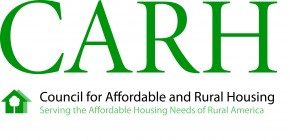- November 2022
- October 2022
- September 2022
- August 2022
- July 2022
- June 2022
- May 2022
- April 2022
- March 2022
- February 2022
- January 2022
- December 2021
- November 2021
- October 2021
- September 2021
- August 2021
- July 2021
- June 2021
- May 2021
- April 2021
- March 2021
- February 2021
- January 2021
- December 2020
- November 2020
- October 2020
- September 2020
- August 2020
- July 2020
- June 2020
- May 2020
- April 2020
- March 2020
- February 2020
- January 2020
- December 2019
- November 2019
- October 2019
- September 2019
- August 2019
- July 2019
- June 2019
- May 2019
- April 2019
- March 2019
- February 2019
- January 2019
- December 2018
- November 2018
- October 2018
- September 2018
- August 2018
- July 2018
- June 2018
- May 2018
- April 2018
- March 2018
- February 2018
- January 2018
- December 2017
- November 2017
- October 2017
- September 2017
- August 2017
- July 2017
- June 2017
- May 2017
- April 2017
- March 2017
- February 2017
- January 2017
- December 2016
- November 2016
- October 2016
- September 2016
- August 2016
- July 2016
- June 2016
- May 2016
- April 2016
- March 2016
- February 2016
- January 2016
- December 2015
- November 2015
- October 2015
- September 2015
- August 2015
- July 2015
- June 2015
- May 2015
- April 2015
- March 2015
- February 2015
- January 2015
- December 2014
- November 2014
- October 2014
- September 2014
- August 2014
- July 2014
- June 2014
- May 2014
- April 2014
- March 2014
- February 2014
- January 2014
House Republican Tax Reform Task Force Blueprint Makes No Mention of Housing Credit and Bonds
CARH’s BROADCAST EMAIL – Legislative Update
June 24, 2016
The Affordable Rental Housing ACTION (A Call To Invest in Our Neighborhoods) is a national, grassroots coalition of over 1,000 national, state, and local organizations focused on ensuring that low-income working families throughout the nation have access to decent, safe, affordable rental housing. The mission of the ACTION Campaign is to protect, strengthen and expand the Housing Credit and preserve Housing Bonds. CARH is part of the ACTION Steering Committee.
The ACTION Campaign shared the following information regarding a tax reform blueprint that was released today.
Today the House Tax Reform Task Force, led by House Ways and Means Chairman Kevin Brady (R-TX-8), released a tax reform blueprint, “A Pro-Growth Tax Code for All Americans,” as part of House Speaker Paul Ryan’s (R-WI-1) “A Better Way” agenda. The Tax Reform Task Force is one of six task forces charged with developing policy recommendations to serve as pillars of the House Republicans’ agenda.
The goals of the tax reform blueprint are to fuel job creation and create opportunity, make the tax code simpler and fairer, and improve the IRS’ customer service. The blueprint does not lay out a detailed legislative framework, but rather the guiding principles that the House will consider as it continues its work on tax reform.
In order to achieve the largest corporate tax rate cut in U.S. history – lowering the top corporate tax rate from 35 to 20 percent – the proposal would eliminate many corporate tax expenditures. “Today, the tax code is littered with special-interest deductions and credits that are designed to encourage particular business activity,” the blueprint states. “The blueprint generally will eliminate special-interest deductions and credits in favor of providing lower tax rates for all businesses and eliminating taxes on business investment.” Only one corporate tax expenditure is expressly retained – the Research and Development credit – and several are targeted for repeal. The draft is silent on the Low-Income Housing Tax Credit (Housing Credit), our nation’s primary tool for developing and preserving affordable housing, and is also silent on the issue of multifamily housing bonds, as well as all other bonds generally.
The Tax Reform Task Force describes the blueprint as “the beginning of our conversation about how to fix our broken tax code.” After the release of this proposal, the Ways and Means Committee will turn its attention to drafting tax reform legislation to reflect these principles, to be introduced in 2017. The process will include an “ongoing dialogue with stakeholders,” and the committee welcomes and encourages comments from the public.
ACTION will continue to make the case that the Housing Credit and multifamily housing bonds are indispensable parts of our nation’s tax code and should be retained and strengthened in tax reform.
Without the Housing Credit, there would be virtually no new affordable housing development at a time when our nation’s affordable housing needs have reached an all-time high. According to a report from Harvard’s Joint Center for Housing Studies released this week, the number of severely cost burdened renters – or those paying more than half of their income in rent – has reached a record 11.4 million. It is fundamentally uneconomic to develop homes that are affordable to our nation’s growing population of low-income renters without the incentive that the Housing Credit provides. Multifamily tax-exempt bonds (used with Housing Credits) are responsible for more than 40 percent of annual Housing Credit production, providing affordable housing to over 1 million families since 1986. The ACTION Campaign intends to submit comments to the Ways and Means Committee to express this position.
More information about the blueprint and instructions on how to submit comments can be found on the Ways and Means website.
CARH will continue to work with the ACTION Campaign and with members of Congress on this very important issue.
Please contact the CARH national office at carh@carh.org or 703-837-9001 should you have questions.





